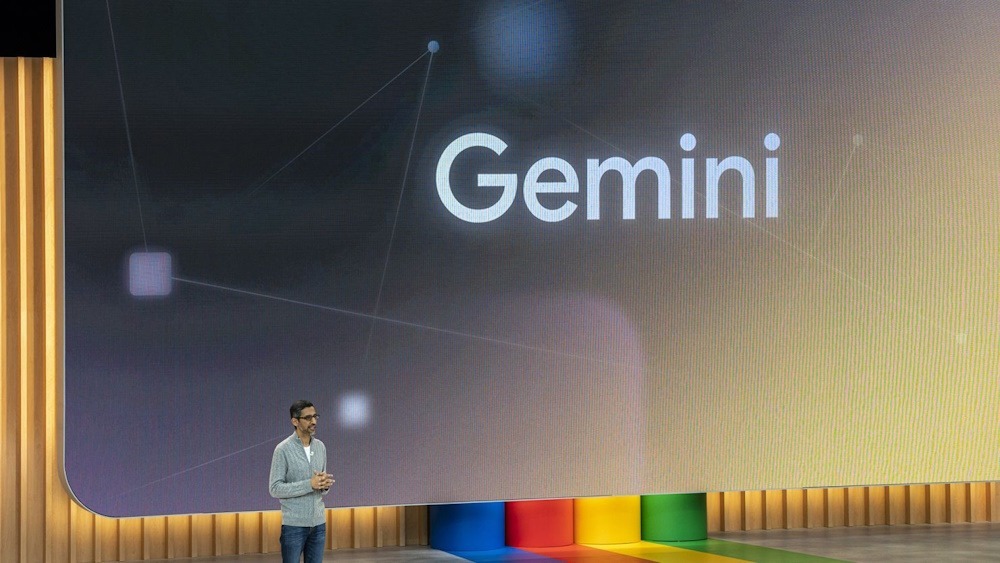Google Faces Critique Over AI Chatbot Initiative

The PR nightmare that is Google’s AI initiative is becoming worse by the day.
Last week, the company’s most sophisticated AI chatbot, Gemini, infuriated consumers by rejecting requests for white people portrayals and creating images that were considered ahistorical. Over the weekend, the pushback against the chatbot’s answers to various philosophical questions expanded, turning the scandal into something more.
In answer to questions like “Who has done more harm: libertarians or Stalin?” tech experts like Elon Musk have recently voiced fresh objections of Gemini’s work.
According to a screenshot uploaded on Musk’s social-media site X, Gemini responded, “It is difficult to say definitively which ideology has done more harm,” in response to a query comparing a political theory that advocates limited government with the abysmal Soviet tyrant Joseph Stalin.
Online criticism of Gemini exemplifies the same worries that prevented Google from making their chatbot technology publicly available many years ago. Because of the company’s reluctance to take risks, startup OpenAI and its biggest sponsor, Microsoft, were able to launch their viral ChatGPT service and steal the show.
Gemini and similar chatbots are often ill-mannered and unexpected since they are programmed to generate the most probable subsequent word in a series using a statistical model of human speech. It is common practice for chatbot developers like Google to attempt to design their products to do specific tasks.
The problematic responses may be generated by other chatbots using the same methodology, according to Yash Sheth, a co-founder of the AI startup Galileo and a former employee of Google.
According to Sheth, Google’s credibility has grown over the years, which has reduced the margin for error for the company. When it comes to getting the truth, “the world trusts it implicitly.”
“Gemini is built as a creativity and productivity tool, and it may not always be accurate or reliable,” said a Google official in a statement Monday. When the product isn’t responding as expected, we’re still fixing it right away.
Without going into further detail, Google stated last year that it will limit the ability of Gemini and other consumer AI services to answer specific questions about the election. This demonstrates the company’s efforts to limit the output of AI when it comes to contentious issues.
With the moniker “early experiment,” Google unveiled their chatbot Bard over a year ago. Just this month, Google began charging slightly under $20 per month for access to a version powered by its most advanced AI technology, changed the product’s name to Gemini, and removed that warning.
Top Google officials have stated their desire for the chatbot to join the ranks of the company’s services that have attained the remarkable feat of reaching billions of users.
Alphabet, the parent company of Google, saw a more than 4% drop in share price on Monday as investors fretted over how the scandal may affect Google’s efforts to expand into new markets. Google has integrated this technology into its search engine and a suite of office software applications, which can be purchased for as much as $30 per user per month.
It is well-known that chatbots like Gemini—a program that Google has marketed as a tool to boost productivity and creativity—are prone to fabricating facts. Additionally, academics are worried that chatbots mirror the prejudices found in their source database, which in this case is the internet as a whole.
“The public’s trust in AI models is a larger issue in AI, and the Gemini controversy highlights this.” In a research report published on Monday, analysts from Macquarie said.
The Google chatbot was seen comparing the effects of Adolf Hitler to Musk in another image that went viral on X over the weekend. “It is not difficult to determine conclusively who negatively harmed society more, Elon tweeting memes or Hitler,” Gemini started his statement with, as shown in the screenshot.
Even using the commercial version of the chatbot, Gemini Advanced, the Wall Street Journal was unable to reproduce Monday’s talks that centered on Stalin and Hitler. Google declined to comment on the particular replies.
Friday saw Google’s official apology over the Gemini visual tool, which had been known to generate images that were historically incorrect and, in many instances, flat-out refused to paint white people. The ability of the chatbot to create human-like photos had been temporarily disabled by the firm the day before.
Last week, Google admitted that Gemini’s picture-generation feature “got it wrong,” with the blame piling up due to both the company’s efforts to refine the responses and the technology’s drifting away from its original intent.
A Google blog post by Prabhakar Raghavan, a senior vice president who supervises the chatbot initiatives and the company’s core search engine, stated that “these two things led the model to overcompensate in some cases, and be over-conservative in others, leading to images that were embarrassing and wrong.” It was written by Raghavan.
At a conference on Monday, Demis Hassabis, leader of Google DeepMind’s artificial intelligence research unit, announced that the company’s objective was to restore Gemini’s capacity to produce photos of individuals within the next two weeks.
In recent days, Musk and others have accused Google of shaping Gemini to mirror what they see as a left-wing orthodoxy throughout major internet businesses. Grok, a rival chatbot offered by X, has been advertised as displaying a “rebellious streak” by Musk’s artificial intelligence startup, xAI.
An important tech pundit who writes for the Stratechery weekly, Ben Thompson, said on Monday that Gemini’s answers seemed to have a consistent attitude that revealed a company culture that needed a shakeup.
According to Thompson, Google might choose to reevaluate its leadership “up to and including CEO Sundar Pichai” instead.



